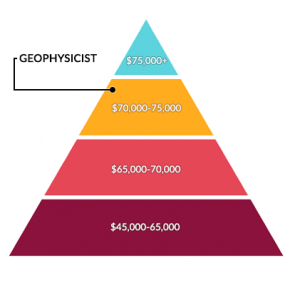All Categories
Featured
Table of Contents
What Is Geophysics? in Westfield Western Australia 2022
This work is significantly contracted out, so consultancies supply another source of employment. Consultancy companies differ in size, from extremely little companies to large multinationals. Some consultancies are rather specialised in using particular geophysical methods or working in specific places, while others offer a more varied range of services to their customers.
The extraction of gas from landfill sites is another area of employment and this may grow in the future. Exploration business may undertake work for building and construction companies, public utility, mining companies and environmental firms, so geophysicists may be employed in any of these settings. Other companies include: geological surveysgovernment bodies and agenciesuniversities and research study institutes.


Jobs might be noted in the oil and gas sector press. Recruitment is affected by oil cost variations and the level of competition for positions varies depending upon this. Professions Days, which cover the complete series of geoscience careers and are usually gone to by a variety of essential industry companies, are run by The Geological Society.
Introducing Geophysical Surveying in Greenwood WA 2021
Some of the big oil and gas companies offer a complete two-year structured training program throughout the breadth of geophysics, consisting of the chance to experience work in various groups prior to specialising in one area. Your training might include work on: existing wellsmagnetic and gravitational prospective field data analysisresearchrock analysis. However, it's more usual for your initial training to be provided on the task.

There might be a probationary period throughout which you work alongside a knowledgeable coworker. Competency-based appraisals take place frequently in many firms. In smaller firms, and for scholastic posts, there is unlikely to be any formal training - you'll be anticipated to start work straightaway and get abilities as you go along.
If you work for a smaller sized business, you might discover that you need to take obligation for setting up and funding your own advancement and training. If you have a geology degree, subscription of The Geological Society can be beneficial for networking and for keeping up to date with the industry.
What Does A Geophysicist Do? in Mundijong Oz 2021
You may likewise find it helpful to join the PESGB (The Petroleum Exploration Society of Great Britain, which has a geophysics special interest group. After a probationary duration, and once you have actually gained some experience, you might advance to senior geophysicist, then group leader and after that into a senior function in management.
The ease of movement in between functions depends on the company structure. Study at Masters or Ph, D level in a subject related to geophysics or geosciences may aid with your profession development and development. The employment market within the oil and gas industry is very reliant on price and this may affect your opportunities for profession development.
For skilled geophysicists, freelance consultancy offers a good route for career advancement. As a geophysicist, you're most likely to have several jobs throughout your working life.
Airborne Geophysical Surveys in Leederville WA 2022
From geophysics, it's possible to concentrate on seismology (completing further training to end up being a seismic interpreter) or to move into associated areas such as engineering geology or threat prediction.
Choosing what to study in college is a difficult option. Even if you know that your field of interest lies in science, what program of research study is best for you?
The very first step to attaining your goal of ending up being a geophysicist is earning a degree. Even for entry-level positions in the field of geoscience, you'll require a bachelor's degree (a geophysicist college degree) from a certified college or university. Some research positions require prospects to hold master's degrees or even Ph.
Geophysical Surveys: Definition & Methods in South Lake WA 2020
Postgraduate degree are particularly important if you plan to teach at a four-year organization. Geophysicists use physics ideas and techniques to study the gravitational, magnetic, and electrical fields of the earth. This advances scientists' knowledge of both the planet's interior core and its surface area. Geophysicists should have the ability to: evaluate rocks, pictures, and other pieces of data conduct research study both in the field and in laboratories create maps and charts of their findings write reports To achieve all this, students need a specialized education for geophysicist careers.
As stated above, you'll require a bachelor's degree in geoscience or a related discipline, such as a physical science or a life sciences, to land an entry-level job. But students can also prepare by majoring in topics like: Biology Chemistry Computer technology Engineering Mathematics Physics The above geophysicist majors offer a more generalized approach to a single scientific discipline, however many programs require students to take several geology course.
Table of Contents
Latest Posts
What Are Geophysical Surveys & Why Do They Matter in Parkwood WA 2023
Geophysical Methods in Merriwa Western Australia 2021
Geophysicist: Job Description, Duties And Requirements in Western Australia 2022
More
Latest Posts
What Are Geophysical Surveys & Why Do They Matter in Parkwood WA 2023
Geophysical Methods in Merriwa Western Australia 2021
Geophysicist: Job Description, Duties And Requirements in Western Australia 2022